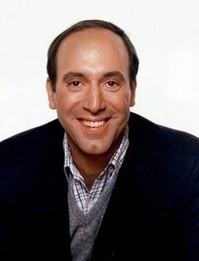

“Transparent Man”
The garment bag was black like any other,
but through the plastic window I could see
a square of white fabric. Before I saw
Saturday Night Fever, that’s how I knew
the polyester suit, which wide lapels
opened onto a slick-black shirt, sewn deep
into the pants. I would have never pictured
bell-bottoms on a man, but there they were
on Tony Manero (John Travolta),
staring into an iridescent light,
pointing his right index finger toward
the ceiling as the dance floor changed colors.
My father saw the movie seventeen times,
and bought that suit, the exact one, at auction.
I asked my mother why he kept it shut
in cedar, hanging on a rack with all
our winter coats, and not inside his closet,
where, later, I buried my face inside
his jackets. Why didn’t we display it?
That’s not who he was, my mother said.
Besides, it almost stood up by itself.
It had to, no one ever tried it on.
Once, I opened the garment bag and peered
inside to see a different actor, one
who seemed to play my father, full light,
a young transparent man dressed up in white.
I was a fan of both Roger Ebert and Gene Siskel and enjoyed their movie reviews for decades. I was amused when I heard Siskel bought the iconic suit from Saturday Night Fever. Until I read Siskel’s daughter’s poem about her father and his suit, I had no idea Siskel saw the movie 17 times.
Callie Siskel writes poems that involve her father, her family, and her life. Like her talented father, Callie weaves a unique picture of the subject she’s exploring. If you’re in the mood for some moving poems, I recommend Two Minds. GRADE: A
You lost me at Travolta! I have nothing but contempt for that bath house hustler Scientologist!
Bob, I’m always amazed that you know the Scientology membership rolls so well!
You don’t have to watch them too closely, as the cult does love to highlight its “celebrity” members, and too often they are slavishly grateful for Hubbard & Co.’s reassurance that their wealth and celebrity, usually in comparison with better artists they and we all know, is Utterly Justified. Among other reassurances, particularly in gender panic, in a very saddening cycle of exploitation.
You do recall that Travolta, for example, had his most ridiculous film role in the adaptation of Hubbard’s BATTLEFIELD EARTH…
Todd, I skipped the movie adaption of BATTLEFIELD EARTH. I do confess I did read the book. It was a waste of time…
I picked up the LP the COS made available to listen to as a soundtrack as one read the novel…for 50c at a used record store. It was rather hilarious, despite having some real talents among the performers (sadly, several jazz people were sucked in, as well, over the decades.)
There are places to find this info!
Bob, I try to stay away from Those Places…
Hm. It wouldn’t be the first passion I’d think of in re: Siskel, no.
Odd that Siskel fille would find it odd that a man would wear “bells”, but I guess she was born much later than we, or never took too close a look at trendier fashions in double-knits of the ’70s. Odd, perhaps, in how ugly they were, certainly.
More a John Simon and Molly Haskell and Harlan Ellison and Patricia Aufderheide man (and caught up with Kathi Maio when she started in THE MAGAZINE OF FANTASY AND SF, as Ellison stepped back there) in the flowering of Siskel and Ebert’s careers (and how they would leave a television series behind for another duo or so of reviewers over the couple of decades, a sort of Johnny Appleseed effect, though sadly their heirs at the gigs were almost universally worse at it).
In the ’70s, found more to agree with in Baird Searles and Ted White’s a/v notes than S&E’s, as well.
Todd, Siskel and Ebert influenced a lot of movie goers. But, Hollywood slowly lost ground to cable TV, the Internet, and streaming services. The Pandemic and strikes damaged the movie industry which has yet to recover.
Oh, I’m aware. Ebert’s wildly undeserved Pulitzer came very early for him.
Ebert also sold Ted White a couple of short stories in the ’70s: https://www.isfdb.org/cgi-bin/ea.cgi?14590
Todd, Ebert did like Science Fiction which many movie critics dismissed.
He was a convention fan in his youth.
She was apparently born in the late ’80s, “losing her father at age 12” in 1999. The past definitely Another Country thus.
Even Jackie hasn’t seen it 17 times, though I could show you several places in the neighborhood where they filmed, including (but not only) the bench where Tony tells Stephanie about the bridge (and the Bridge itself, of course), the Manero house, the street corner where he asks Bobby (in white platform shoes) to borrow his car, where the disco was, the park where they harass the gay guys.
Jeff, I watched SATURDAY NIGHT FEVER once. But I’ve listened to the soundtrack many many times!